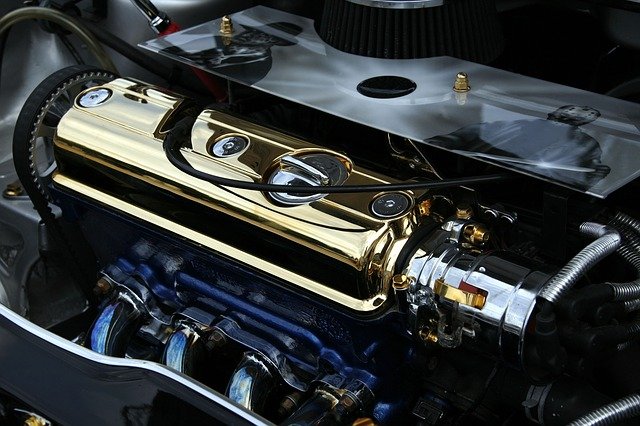When you buy a new car or vehicle, chances are it will be very confusing for the car owner to keep track of the various types of warranties available in the market today. There are several different types of warranties, and each covers a different part of your car.
Furthermore, there are several companies where you can avail of these car warranties, such as those that are offered by companies like Auto-Protect, with their Auto Protect warranty.
In this piece, we will understand how car warranties work, and learn the various types of car warranties that you are most likely to encounter when you purchase a new car. Read on.
How A Warranty Works
A car warranty generally works like car insurance or any other insurance. An extended warranty for your cars requires the car owner to secure the payment for the monthly premium, and then, they can make a claim through the company if anything breaks that is covered in your contract. Car warranties are like car insurance, but for mechanical breakdowns in your car.
However, a car warranty does not cover certain items that a car insurance covers, such as hail, fire, fender benders, or serious car accidents that the vehicle may get involved in.
The extended warranty or the vehicle service contract covers major repairs that insurance does not. Manufacturer warranties are often similar. However, they just do not require a monthly premium since the cost of the warranty was already covered by the manufacturer in the vehicle’s purchase price.
For instance, your warranty for the car works when your starter malfunctions, or when the car transmission falls cleanout.
We can also use the example wherein, you are on your morning commute, and suddenly, the engine blows out and you find yourself stranded along the road. Without a warranty, repairing this may cost you more than $5,000 or even more, up to $10,000. But with a warranty that covers this kind of repair, you will have your warranty provider handling all the repairs needed and paying the mechanic.
Instead of the $5,000 cost of replacing the engine without a car warranty, when you tie up and sign a contract with providers of car warranties, these same repairs will only cost you around $100, and even depending on your policy. There are some circumstances when you might even qualify for high-quality roadside assistance at no additional costs.
What Are The Types Of Vehicle Warranties?
In this part of the article, we will take a look at the various types of car warranties. Keep on reading.
Basic Warranty
Basic warranties for your car are also referred to as “bumper-to-bumper” coverage. This type of car warranty comes with new cars, and at times is transferable when the car is sold to a new owner.
This kind of warranty covers the parts of your vehicle that may break down due to the usual wear-and-tear or manufacturing error. However, this warranty may not cover parts that normally break down, including batteries and tires. It also does not cover any damage due to car misuse.

Dealership Warranty
On the other hand, dealership warranties for your cars are provided to vehicles purchased from a dealership. Each dealership typically covers various things. There are specific stipulations in the contract with regards to what is covered, and what you must do to repair the covered parts. These clauses may include that you can only have your vehicle serviced at the car dealership when you bought the vehicle.
Extended Warranty
You have learned a glimpse about the extended warranty earlier in this article. Extended warranties are also referred to as aftermarket warranties. This kind of warranty covers a car for an additional period of time after the warranty of the manufacturer has ended.
Each company will have a distinct type of extended warranty, and you should know that there are cars that may not be covered after all. What you can do to see if your vehicle qualifies for an extended warranty is by checking each manufacturer’s website.
Generally, extended car warranties cover less than what the original car warranty covers.
Power-train Warranty
Meanwhile, your power-train warranty covers the major parts of the car, such as the car’s transmission, engine, and trans-axle parts. Should there be a manufacturer error, these car parts will then be replaced or repaired with no costs from the car owner.
Note that there are companies that offer power-train warranties without any deductibles while others may have. This type of warranty is also referred to as the drive-train warranty.
Rust And Corrosion Warranty
After your power-train warranty, there is the rust and corrosion warranty, a car warranty that is not often included in the basic warranty with all the car dealerships. However, there are particular manufacturers that can provide this type of warranty as part of the basic warranty.
As the name implies, rust and corrosion warranty or coverage covers the vehicle in case of rusting, usually after it has made a hole through the metal. There are manufacturers that offer this warranty from a certain point, such as when rust has made a hole through the car’s metal. Then, there is rust and corrosion coverage that may only cover corrosion from the window line and down.
Emissions Warranty
Emissions warranties are car warranties that cover any problems with the emission that the car owner may experience after some years or mileage.
The basic warranty may at times cover the emissions warranty, but may only be offered separately. Finding this warranty from the basic car warranty though is rare. There are car manufacturers like Ford where the emissions warranty is separate from the basic warranty.
Roadside Assistance
Last but definitely not least is roadside assistance. This is generally offered by car insurance companies, but there are times when this is provided by car manufacturers.
Should the car owner find themselves stranded on the side of the road because of issues with the vehicle, roadside assistance can offer help. Many car manufacturers will tow the car or change a tire for free, and these are available 24/7.
Choose The Right Company That Offers Car Warranties
Now that you have understood what a car warranty is, how it works, and the various types of car warranties, you should be able to navigate this aspect of car ownership better.
However, there is one more hurdle that you should conquer. There are several companies that offer car warranties, and it could be challenging to choose what is best for you. How to do this?
You might be able to know your needs and requirements. Once you do, you can start your search for the company where you will obtain the car warranty. Provide yourself a list of the top three companies you prefer for one, and coordinate with them to find out about their offers. In these ways, you will be able to match your preferences with the right company that provides the car warranty.








